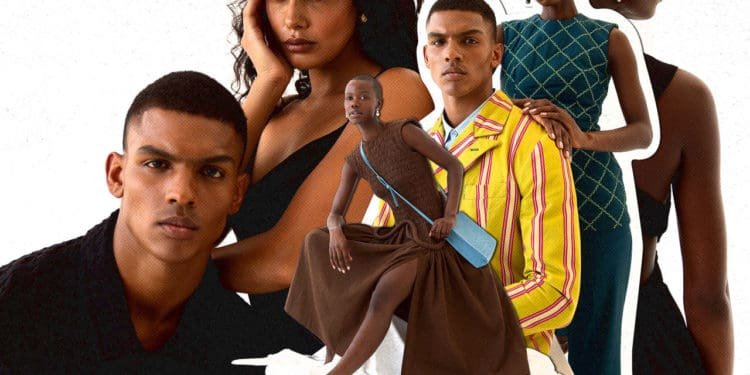You can locate the most well-known luxury brands of the present day in a trendy shopping district, such as New York’s Meatpacking District or Paris’ Champs Élysée. These labels include Chanel and Tory Burch. Most of them were started by white designers with clearly Western viewpoints. This concerns Amira Rasool, who is working to help African designers compete with their rivals in the United States and Europe. She started The Folklore, an online store that features prominent African designers like Ahluwalia and Thebe Magugu, four years ago. However, starting on September 7th, the business will go beyond selling single items and shortly introduce a brand-new platform called The Folklore Connect that makes it simple for retailers to place bulk purchases.
Rasool grew up loving fashion and once aspired to become a fashion journalist. But when she attended Rutgers University, she become interested in African studies, and went on to the University of Cape Town to pursue a masters in the field. Over time, it occurred to her that she could bring her two passions together. “I studied iconic figures like James Baldwin and W.E.B. Dubois, these radical figures who dedicated their life’s work to the social and economic futures of Black people,” she says. “I saw an opportunity to amplify the voice and conditions of Black people by helping African designers increase exports from the continent.”
She began exploring the nascent, bustling fashion industries across Africa, identifying up-and-coming labels like Orange Culture and Andrea Iyamah from Nigeria, and House of Gozdawa in South Africa. She brought them onto The Folklore Marketplace, a website that enabled customers in the U.S., Europe, and around the world to shop these brands, taking an undisclosed commission. But she quickly discovered that it was hard to drive enough traffic to the site to make a big impact on behalf of these designers. To reach a bigger audience, she needed to connect them with bigger retailers–from Nordstrom to cool boutiques–who would carry their collections. “They already had large, established customer bases,” says Rasool. But this proved to be a difficult task. For starters, navigating the corporate infrastructure in Africa can frequently be difficult. Many African nations don’t have access to global payment systems like Stripe, therefore designers are unable to receive money into their local bank accounts. Then there are the shipping concerns. While DHL and FedEx serve the entire continent, sending products abroad may be quite expensive for individual designers; even within the United States, businesses and stores receive significantly lower rates by shipping big quantities of goods. The Folklore Connect, which offers all the business services African designers require to collaborate with American and European shops, was built by Rasool over the course of the previous year. Applying to be a part of Connect is open to designers and brands.

